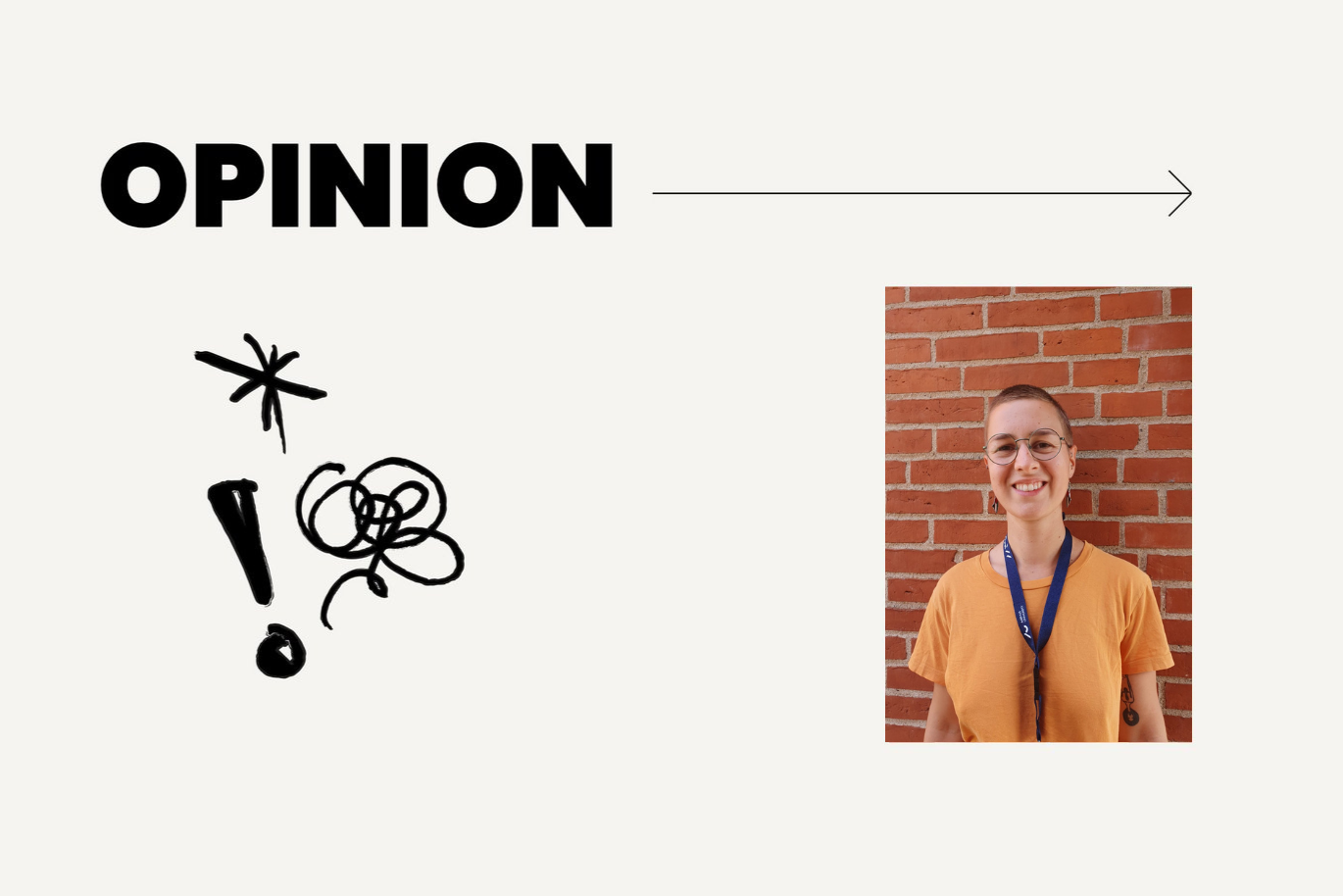OPINION: Should ideals be hidden when things get political?
It’s disappointing and a cause for concern that Aarhus University has chosen not to support Aarhus Pride this year, citing what they describe as the event’s politicisation. It makes one wonder whether the university is actually living up to its ideals of inclusion and diversity, or simply talking the talk without walking the walk, PhD student Dina Winther writes.

This is an opinion piece, the views expressed in the column are the writer’s own.
I am a PhD student at the Department of the Study of Religion at AU. And I'm queer. When I read on Tuesday that AU has decided to withdraw its participation and distance itself from Aarhus Pride, I was both disappointed and really sad.
Aarhus University is not participating in this year’s Aarhus Pride
As a student at AU, I have doubted the extent to which the university prioritises diversity. I have primarily been taught by a very uniform group of teachers and during my studies, I have experienced an extreme degree of course material written by mainly white, Western men.
As a PhD student, my doubts have, unfortunately, been confirmed. The first time was my participation in the DEI (diversity, equity and inclusion) conference for employees at AU in March. I signed up for the conference hoping to see my workplace actively working for inclusion, rather than treating it as a performative badge of quality. Instead, I experienced that diversity was perceived as the presence of two genders, illustrated in various graphs, which by the way showed that only 27 percent of the university's professors are women. In addition to the graphs, one could get the impression from the language used by several of the speakers that the university is officially of the opinion that there are only two genders. For me, the conference ended up highlighting how Aarhus University systematically overlooks students and staff who identify outside the gender binary, as well as its narrow view of what inclusion means – namely sexuality, ethnicity, religion, class, neurodiversity, and so on.
Among other things, the above has confirmed for me that the university isn’t doing enough to reach all groups, nor is it clear enough in genuinely committing to making students and staff who identify as LGBTQI+ feel safe. A small step in that direction could be, for example, to participate in Aarhus Pride, as AU did last year, and to show support for those of us for whom the parade holds personal meaning. The fact that the university refuses to participate based on what I would undoubtedly call gossip and loose accusations – which Aarhus Pride explains very well on their website – shocks and worries me, and it confirms my previous experiences.
Many of us care about the rights of LGBTQI+ people in the world. Not only in the United States, but also in Denmark, the tone towards sexual and gender minorities has become harsher and the world more unpredictable. It affects me at work and in my life in general. Beyond my own queerness, AU’s decision also impacts my professional work.
Many of us work in research fields that are politically charged. This year, by opting not to back Pride due to its perceived politicisation, the university also neglects to demonstrate its commitment to the principle and ideal of inclusion. This has implications for our academic freedom, as it creates uncertainty about whether, in the university’s view, politicisation is a reason to withdraw from certain topics and ideals. The decision, its signals, and consequences are therefore concerning on multiple levels, and I believe that various bodies at the university responsible for research, education, staff, and students should take it very seriously.
I will join the parade on Saturday and continue to fight for the importance of diversity, representation and real inclusion as more than just something you say – but something you do.
This text is machine translated and post-edited by Cecillia Jensen.

